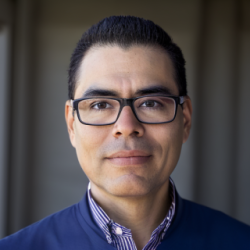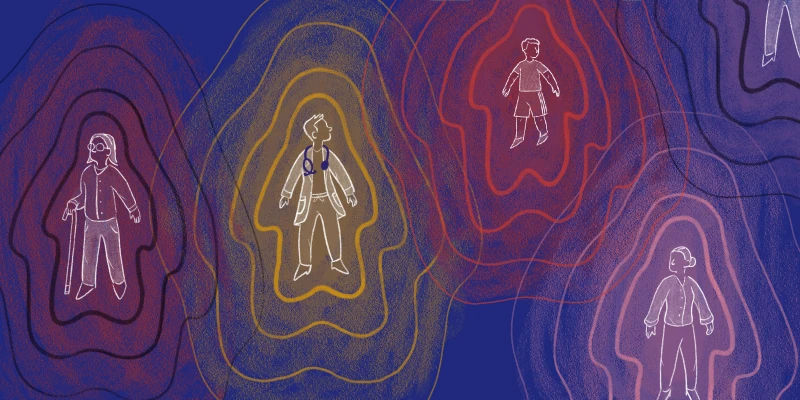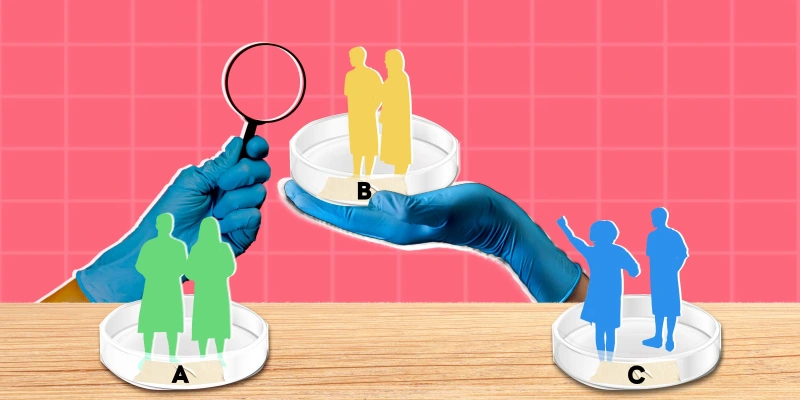During this past February, I was fully immersed in my third-year internal medicine rotation. I had developed a rhythm of meeting my patients in the morning, rounding with the team, completing tasks, and updating family before the day’s end. Many of my patients were hospitalized for acute issues, like poorly controlled COPD heart failure and Type 2 diabetes. Yet, one of my patients was the exception to the rule. Mr. James Turner was a 58-year-old man who had been experiencing debilitating back pain for several months before seeking out care from his PCP. Given that Mr. Turner was a proud Marine corps veteran, his PCP was already suspicious about this newfound pain. After learning of his increasing fatigue and 50-pound unprovoked weight loss, the PCP sent Mr. Turner to our hospital for imaging and expedited workup. The ensuing results were profound and devastating: Mr. Turner’s entire spine had been eroded and destroyed by countless metastatic tumors. In the 72 hours following his hospital admission, Mr. Turner’s life completely changed and he held a heartbreakingly poor prognosis.
Mr. Turner’s wife spent every moment she could by his side, while also managing their 17-year-old son’s schedule. After our attending shared the news with her and the patient, I decided to check in with them later that afternoon to answer any questions they may have had about potential treatments, palliative care, and hospice. When I walked into Mr. Turner’s room, his wife sat quietly in the corner while I made small talk with the patient and assessed his pain. I noticed she was becoming increasingly teary and invited her to step into the hallway to speak with me privately. She immediately broke into tears: “I know it’s not good, Najya … But I have to be strong for our son. I need James to hold on ‘til June, just so we can see our baby graduate.” I’ve always prided myself on being a person who can say words of comfort in difficult times. However, as I looked into this woman’s eyes, I found myself without words. Having seen her husband’s scans and knowing how dire his prognosis was, our team was hoping that we could make him as comfortable as possible for the next few weeks. How could I offer this woman honest hope for a few months from now when the patient’s current survival was already a miracle by our standards? Ultimately, I invited her into my arms for a silent hug, and steeled myself as she wept onto my scrubs, hoping she couldn’t feel the pounding of my heart as it attempted to hold the truth.
Mr. Turner was hospitalized for almost two weeks, which also coincided with the end of my rotation. On my last day, I found him lying in bed; he greeted me with a warm smile. “It’s always great to see you. How are you doing, honey?” I returned his gesture with a gentle pat on his hand and confirmed that I was well before asking about himself. His response was simple and telling: “Well … you know. But I’m here.”
Soon after, I transitioned into my next rotation, pediatrics, which was out of state. I didn’t have much time to follow up on Mr. Turner’s care and ultimate outcome. Nevertheless, I carried him and his wife in my prayers and thoughts for weeks on end, silently manifesting the best possible aftermath. Several months later, I returned to my home hospital institution for my EM rotation, and logged into my Epic account. I completed some chart review for our triage patients, and as I was navigating through the search bar, I saw the name: James Turner. There was a tell-tale leaf attached to his profile, signifying that he had already passed away. I felt the saltiness of my unshed tears and quickly returned my focus to my current patients — there was no space for my grief to exist.
During the clinical portion of medical school, students spend four to eight weeks rotating through different core specialties to gain a sense of what it would be like to pursue those specialties as careers. I remember bubbling over with excitement about the opportunity to finally interact with the community as a medical trainee after spending one and a half years in didactics. Yet, as I reflect on the process, I realize that no one adequately prepared me for the grief associated with developing a relationship with your rotation patients, only to leave them behind a mere few weeks later. Mr. Turner was a significant example of this phenomenon, but he was not the only one that I encountered during my clinical rotations. I often had to resist the urge to email and reach back out to my attendings and residents to find out exactly what happened to the patients whom I followed and supported during my time with the team. (For those unfamiliar, after completing a rotation, you are no longer considered a part of the medical care team and should not attempt to access any of their information, via word of mouth or the EMR system. It is a breach of patient confidentiality that leads to disciplinary action.) This longing to know is a feeling that I initially struggled to hold — but eventually learned how to manage.
I found solace in coping strategies that allowed me to find peace and resolution with the fact that I had to let my patients go. These strategies include writing in my journal, listening to music I know a certain patient enjoys, lighting a candle or incense to honor the time we shared, and allowing myself to feel safe in my grief and sadness when they present themselves. If I think of a patient, I allow myself to smile fondly and send a small thought into the atmosphere for their well-being. Moreover, if I find myself anxious about a particular patient’s outcome, I grant myself the permission to lean on my loved ones and support systems. I imagine many of us in health care and patient-centered work can struggle with the “not knowing” after our relationship comes to an end, so I offer these words as support and encouragement: Acknowledge. Address. Act. Accept and let go.
It hasn’t gotten any easier to say goodbye to my patients on rotation, but with time and mindful practice, I have learned to be gentle and gracious with myself throughout the process.
Do you have patients you think about often? Share a (HIPAA-compliant!) note about them in the comments.
Najya A. Williams is a multidisciplinary artist, narrative medicine practitioner, and fourth-year medical student at the Lewis Katz School of Medicine. She is passionate about serving her community and intends to continue this work after graduation as a family medicine physician. You can learn more about Najya’s endeavors via her Instagram (@NajyaWilliams) and website (najyawilliams.com). Najya is a 2024–2025 Doximity Op-Med Fellow.
Name and identifying details have been changed to protect patient privacy.
Illustration by April Brust







